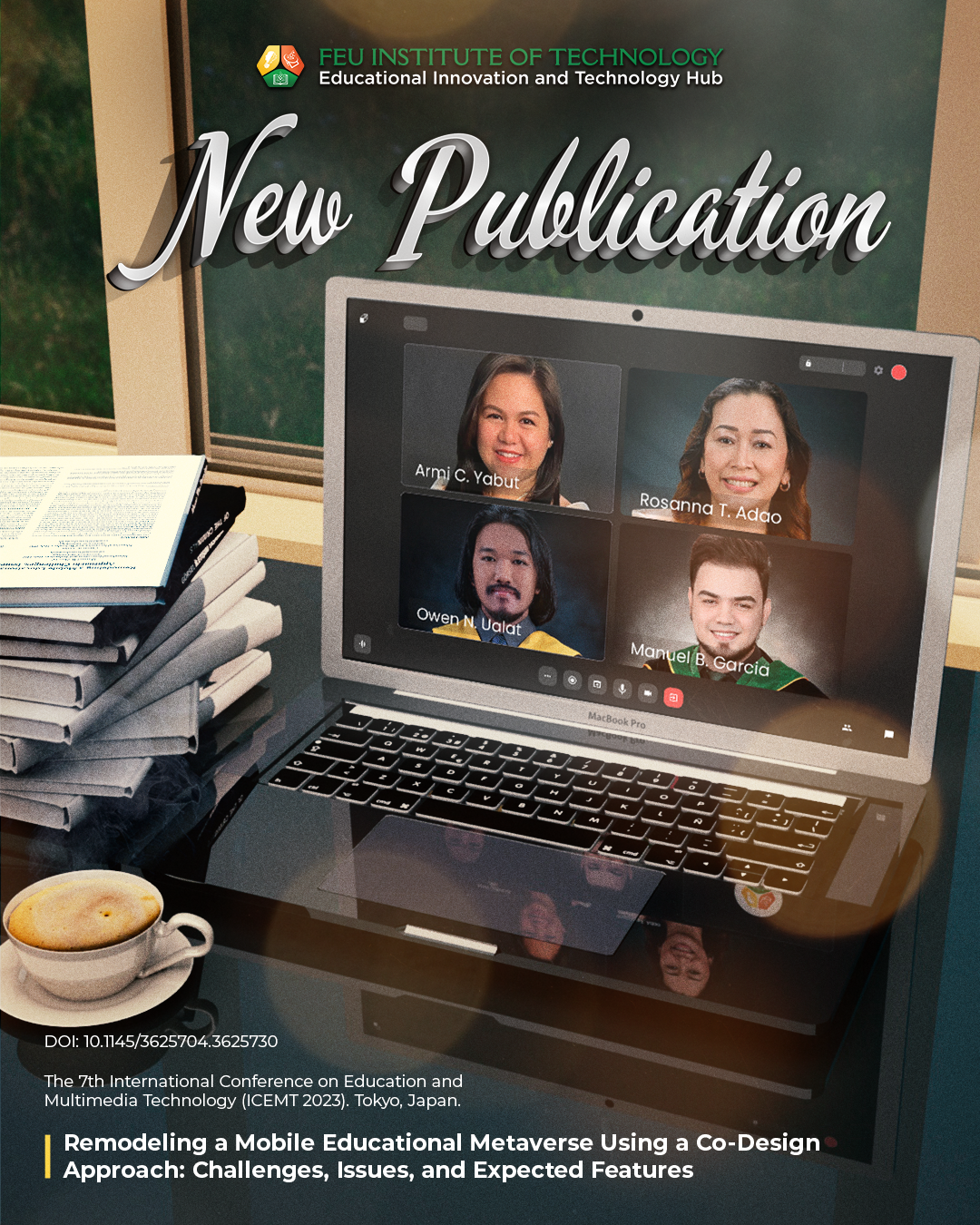Pioneering the Educational Metaverse: Insights from the MILES Virtual World Co-Design Study
A groundbreaking study about an educational metaverse reveals key insights and strategies for developing effective metaverse applications in education.
December 20, 2023
Research
The emergence of the metaverse marks a pivotal moment in education technology as it extends the capabilities of virtual spaces to provide immersive, interactive, and socially enriched learning experiences. A recent publication, "Remodeling a Mobile Educational Metaverse Using a Co-Design Approach: Challenges, Issues, and Expected Features," delves deep into this transformative phase. Spearheaded by the Educational Innovation and Technology Hub at FEU Institute of Technology, the study focuses on the MILES Virtual World, a non-VR, mobile-accessible digital school environment mirroring the physical world of academia.
The study employed a qualitative, co-design approach, recognizing the value of diverse perspectives from different stakeholders. This methodology is particularly effective in metaverse contexts due to the complexity and novelty of the technology. By involving developers, teachers, and students, the study aimed to capture a comprehensive view of the metaverse's potential and challenges in education.
Research Questions and Methodology
The study centered on three research questions addressing the challenges developers face in building a metaverse, the issues teachers foresee in its educational use, and the key features students expect in an educational metaverse application. These questions guided the co-design process, ensuring the development of a metaverse application that aligns with educational standards and best practices.

Developers' Challenges
In the study, developers highlighted key challenges in building the MILES Virtual World. Firstly, establishing a scalable and robust technical infrastructure was a significant hurdle due to the metaverse's complex and interconnected ecosystem, requiring high computational power and stable servers for large numbers of students. Secondly, maintaining student engagement in the virtual world was crucial, necessitating continuous innovation in digital activities to keep users interested and involved. Thirdly, avatar customization posed a challenge, especially in achieving photorealistic 3D models that represent users' identities. Finally, performance optimization was essential, focusing on efficient operation and reducing the application’s installation size while maintaining a high-quality user experience.
Teachers' Concerns
Teachers participating in the study voiced several concerns regarding the integration of metaverse technology in education. Their primary worry was the potential impact on learning outcomes, with a lack of empirical evidence about the effectiveness of the metaverse in improving student learning. Health and safety issues were also prominent, stemming from prolonged screen time and the risks of cyberbullying. Digital citizenship was another area of concern, emphasizing the need for online etiquette and a safe virtual environment. Lastly, teachers were apprehensive about the ethical and moral implications within the metaverse, highlighting the potential for unethical behavior due to anonymity and a lack of real-world consequences.
Students' Expectations
Students, as the primary end-users of the MILES Virtual World, had specific expectations for the metaverse application. They desired a platform that facilitated socialization and collaboration, allowing them to build relationships and connect with peers across different campuses. Interactive engagements with the virtual world, such as the ability to manipulate virtual objects, were also crucial for a more immersive learning experience. Students emphasized the need for application optimization to ensure accessibility and reduce loading times. Realistic graphics were important for creating a believable virtual environment. Lastly, the inclusion of minigames and diverse activities was seen as essential for maintaining interest and providing entertainment within the educational metaverse.
Conclusion and Educational Implications
The study's findings provide a comprehensive framework for the development of educational metaverse applications, addressing the nuanced challenges, concerns, and expectations identified by developers, teachers, and students. The insights gained are crucial in refining and enhancing the MILES Virtual World. The department plans to use these findings to make targeted improvements in the application. For developers, this involves enhancing the technical infrastructure for scalability, creating more engaging content, improving avatar customization, and optimizing performance. For teachers, the focus will be on integrating the metaverse in a way that enhances learning outcomes while ensuring health, safety, digital citizenship, and ethical use. For students, the department aims to incorporate features that foster socialization, collaboration, and interactive virtual world engagements, alongside optimizing the application for accessibility and including realistic graphics and entertaining minigames. These changes are expected to increase the adoption and utilization of MILES Virtual World, making it a more effective and immersive educational tool.
